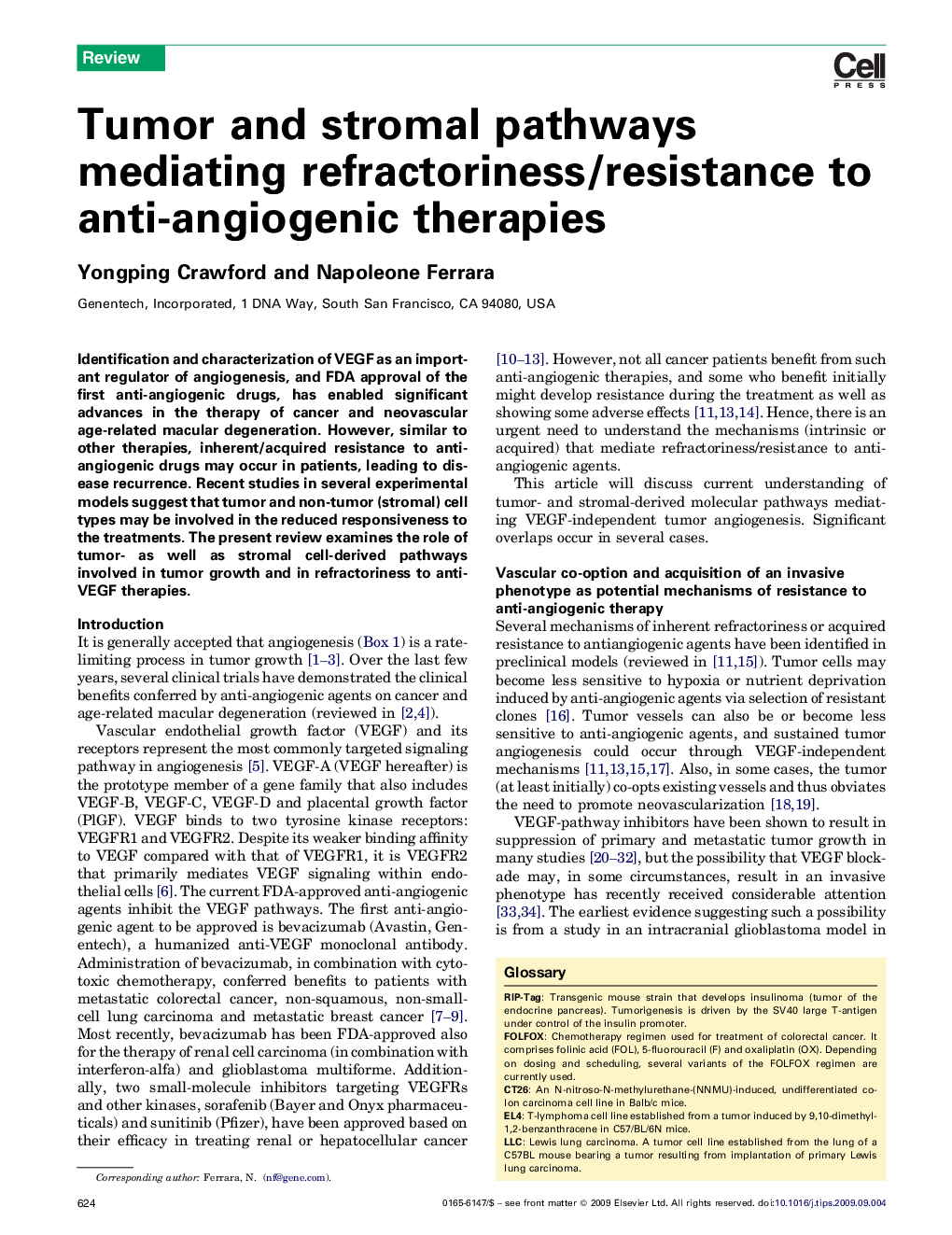| Article ID | Journal | Published Year | Pages | File Type |
|---|---|---|---|---|
| 2573410 | Trends in Pharmacological Sciences | 2009 | 7 Pages |
Abstract
Identification and characterization of VEGF as an important regulator of angiogenesis, and FDA approval of the first anti-angiogenic drugs, has enabled significant advances in the therapy of cancer and neovascular age-related macular degeneration. However, similar to other therapies, inherent/acquired resistance to anti-angiogenic drugs may occur in patients, leading to disease recurrence. Recent studies in several experimental models suggest that tumor and non-tumor (stromal) cell types may be involved in the reduced responsiveness to the treatments. The present review examines the role of tumor- as well as stromal cell-derived pathways involved in tumor growth and in refractoriness to anti-VEGF therapies.
Related Topics
Life Sciences
Neuroscience
Cellular and Molecular Neuroscience
Authors
Yongping Crawford, Napoleone Ferrara,
